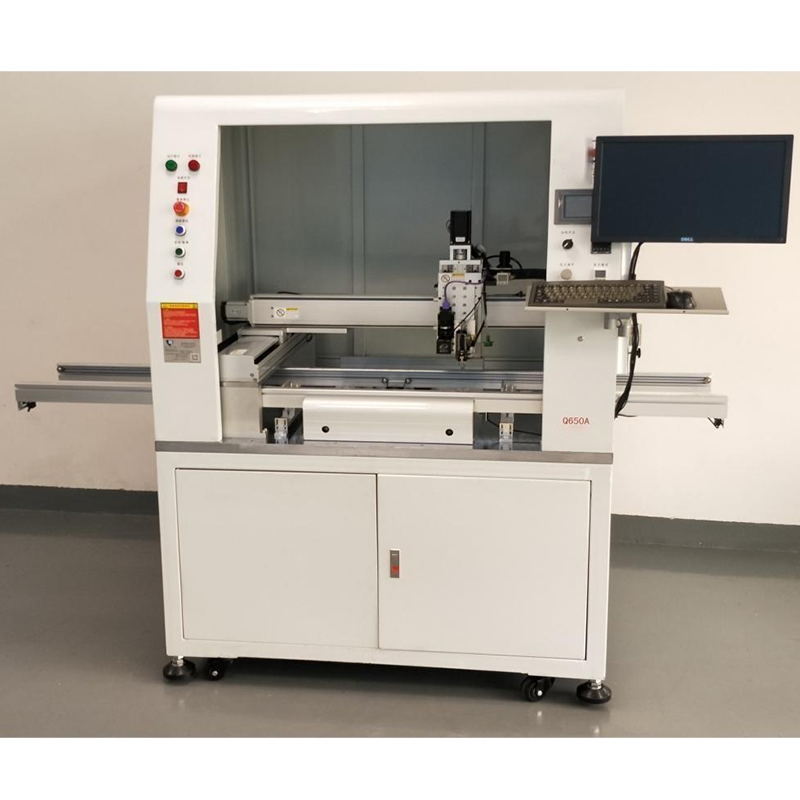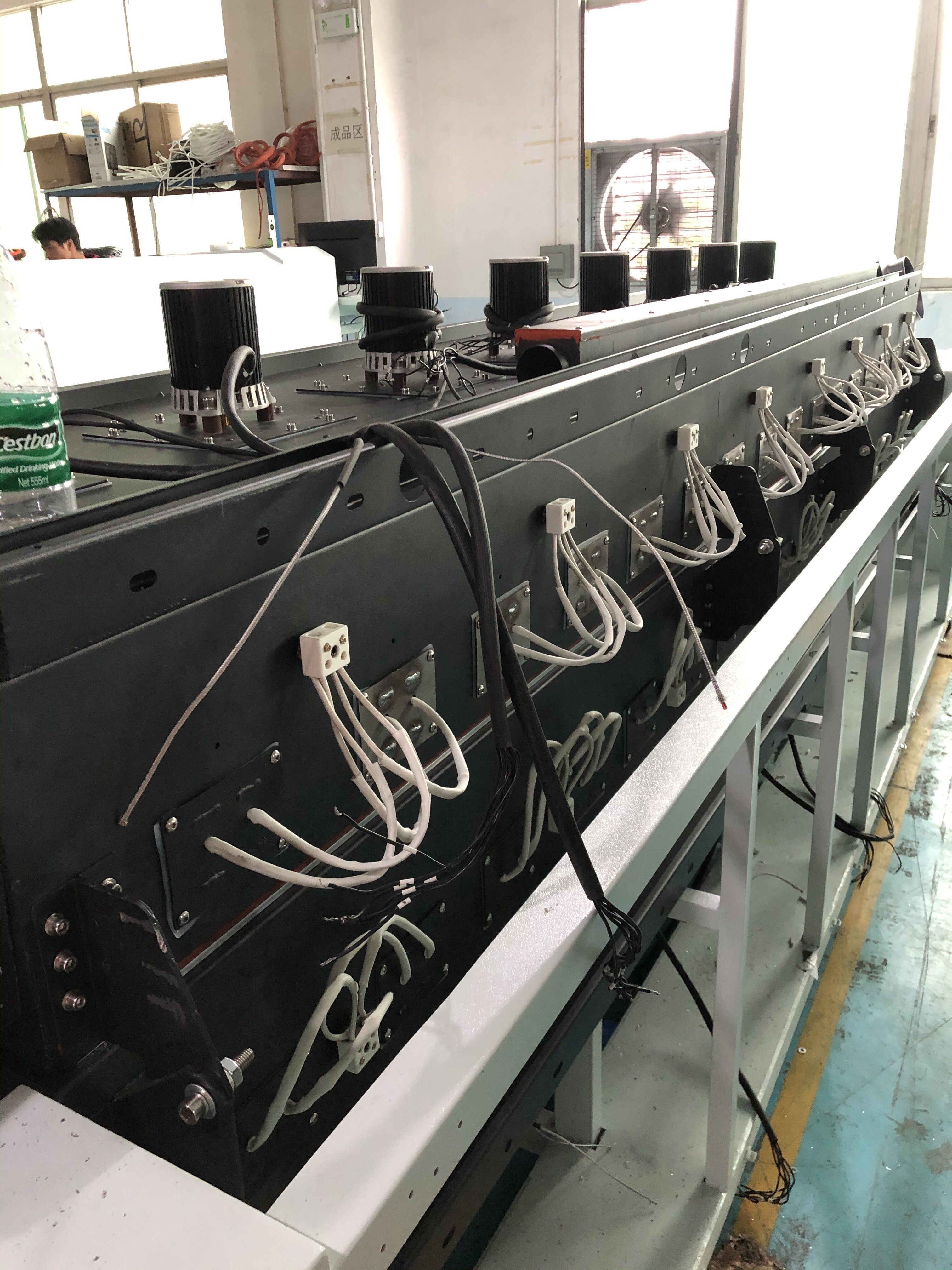Error de formato de correo electrónico
emailCannotEmpty
emailDoesExist
pwdLetterLimtTip
inconsistentPwd
pwdLetterLimtTip
inconsistentPwd


Wholesale SMT Surface Mounting Machines
In the realm of electronics manufacturing, efficiency and precision are paramount. As demands for faster production and higher quality escalate, the integration of state-of-the-art equipment becomes imperative. Among these innovations, wholesale SMT surface mounting machines stand out as game-changers. In this comprehensive guide, we delve into the intricacies of these technological marvels, exploring their benefits, components, and implementation strategies.
Understanding Wholesale SMT Surface Mounting Machines
In the realm of electronics manufacturing, precision, efficiency, and scalability are fundamental pillars that define success. As technology advances and consumer demands evolve, manufacturers continually seek innovative solutions to streamline production processes and enhance product quality. One such solution that has revolutionized the landscape of electronics assembly is the wholesale SMT (Surface Mount Technology) surface mounting machine.
What are Wholesale SMT Surface Mounting Machines?
At their core, wholesale SMT surface mounting machines are sophisticated pieces of equipment designed to automate and optimize the assembly of electronic components onto printed circuit boards (PCBs). These machines are integral components of SMT assembly lines, which are widely used in the production of a vast array of electronic devices, ranging from consumer electronics to industrial equipment.
Key Components of Wholesale SMT Surface Mounting Machines
1. Component Feeders: Component feeders are responsible for precisely supplying electronic components to the pick and place head. These feeders come in various types, including tape feeders, tray feeders, and tube feeders, each tailored to accommodate different component types and sizes.
2. Pick and Place Head: The pick and place head is the workhorse of the surface mounting machine. It accurately picks up electronic components from the feeders and places them onto designated locations on the PCB. Modern pick and place heads boast high-speed capabilities and advanced vision systems to ensure precise component placement.
3. Vision Systems: Vision systems play a critical role in ensuring the accuracy of component placement. These systems utilize cameras and image processing algorithms to inspect components, verify their orientation, and align them correctly on the PCB. This ensures that components are placed with utmost precision, minimizing errors and rework.
4. Conveyor System: The conveyor system transports PCBs through various stages of the assembly process, ensuring a continuous workflow. Adjustable conveyor speeds and modular designs allow for flexibility in accommodating different production requirements and layouts.
5. Reflow Oven: After components are placed on the PCB, the assembly undergoes soldering in the reflow oven. This process involves subjecting the PCB to controlled heating, causing solder paste to reflow and create secure solder joints. Precise temperature control and thermal profiling ensure consistent and reliable soldering results.
6. Inspection Systems: Inspection systems are vital for quality assurance in electronics manufacturing. Automated Optical Inspection (AOI) and X-ray inspection systems detect defects such as misaligned components, solder bridges, and insufficient solder joints. These systems ensure that finished products meet stringent quality standards before leaving the production line.
Benefits of Wholesale SMT Surface Mounting Machines
1. Increased Efficiency: The SMT surface mounting machines automate the assembly process, significantly reducing cycle times and increasing throughput. This allows manufacturers to meet tight production deadlines and scale their operations to meet growing demand.
2. Improved Accuracy: Advanced vision systems and precise placement mechanisms ensure that components are placed with unparalleled accuracy. This minimizes errors and reduces the need for manual intervention, leading to higher product quality and consistency.
3. Enhanced Flexibility: The SMT surface mounting machines are highly versatile and can accommodate a wide range of component types and PCB designs. This flexibility allows manufacturers to adapt to changing production requirements and efficiently produce diverse product lines.
4. Cost Savings: While the initial investment in the SMT surface mounting machines may be significant, the long-term cost savings are substantial. By reducing labor costs, minimizing errors, and optimizing production efficiency, these machines offer a compelling return on investment over time.
Optimizing Production Efficiency with Wholesale SMT Surface Mounting Machines
In today's fast-paced manufacturing landscape, optimizing production efficiency is crucial for staying competitive and meeting customer demands. The SMT surface mounting machines offer a powerful solution to enhance efficiency throughout the assembly process. Let's delve into how these machines can be leveraged to streamline operations and maximize output.
✔ Streamlined Component Placement
One of the primary functions is their ability to streamline component placement on PCBs. These machines employ advanced pick and place technology, which ensures precise and swift placement of surface mount components. By automating this process, manufacturers can significantly reduce cycle times and minimize errors associated with manual handling.
✔ Advanced Vision Systems
Integrated vision systems play a vital role in optimizing production efficiency by providing real-time feedback on component placement accuracy. These systems utilize sophisticated cameras and software algorithms to inspect each component's position and orientation before soldering. Any discrepancies are immediately detected, allowing for timely adjustments and minimizing the need for rework.
✔ Continuous Production Flow
The SMT surface mounting machines are designed to facilitate a continuous production flow, eliminating bottlenecks and downtime. Integrated conveyor systems transport PCBs seamlessly through various stages of the assembly process, ensuring a steady workflow. This continuous flow minimizes idle time between production steps, maximizing overall equipment effectiveness (OEE) and throughput.
✔ Flexible Configuration Options
To further optimize production efficiency, the SMT surface mounting machines offer flexible configuration options tailored to specific manufacturing requirements. Manufacturers can customize machine settings such as placement speed, soldering profiles, and inspection parameters to optimize performance for different product types and production volumes.
✔ Predictive Maintenance
To prevent unexpected downtime and ensure optimal machine performance, many SMT surface mounting machines are equipped with predictive maintenance capabilities. These systems monitor machine health in real-time, detecting potential issues before they escalate into major problems. By addressing maintenance needs proactively, manufacturers can minimize unplanned downtime and maintain consistent production output.
✔ Employee Training and Support
Investing in comprehensive employee training and support is essential for maximizing the efficiency of SMT surface mounting machines. Well-trained operators can effectively utilize machine features and troubleshoot common issues, minimizing disruptions to production. Additionally, ongoing technical support from equipment suppliers ensures prompt resolution of any issues that may arise, keeping production running smoothly.
Implementing Wholesale SMT Surface Mounting Machines
Implementing wholesale SMT surface mounting machines into your manufacturing facility can be a transformative step towards enhancing productivity and efficiency. Let's explore the key considerations and steps involved in this process to ensure a successful integration.
✔ Assessment of Production Needs
Before embarking on the implementation of wholesale SMT surface mounting machines, it's crucial to conduct a thorough assessment of your production requirements. Evaluate factors such as anticipated production volume, product complexity, and current manufacturing capabilities. This assessment will provide valuable insights into the type and scale of machines needed to meet your production goals effectively.
✔ Research and Selection
Once you have a clear understanding of your production needs, research different suppliers and machine models available in the market. Consider factors such as machine capabilities, reliability, after-sales support, and overall cost-effectiveness. Engage with reputable suppliers who can offer customized solutions tailored to your specific requirements.
✔ Facility Preparation
Prepare your manufacturing facility to accommodate the new SMT surface mounting machines. Ensure that you have adequate space, utilities (such as power and ventilation), and infrastructure to support the installation and operation of the equipment. Make any necessary modifications or upgrades to optimize the layout and workflow of the production line.
✔ Installation and Integration
Work closely with the chosen supplier to schedule the installation and commissioning of the SMT surface mounting machines. Follow their recommendations and guidelines to ensure proper setup and integration with existing production equipment and systems. Conduct thorough testing and validation to verify the functionality and performance of the machines before full-scale operation.
✔ Employee Training
Invest in comprehensive training programs to equip your workforce with the necessary skills and knowledge to operate and maintain the new SMT surface mounting machines effectively. Training should cover machine operation, programming, troubleshooting, and safety protocols. Empower your employees to become proficient users of the equipment to maximize its potential and productivity.
✔ Operational Optimization
Once the SMT surface mounting machines are up and running, continuously monitor and optimize their performance to maximize efficiency. Implement data-driven approaches such as OEE (Overall Equipment Effectiveness) monitoring and predictive maintenance to identify areas for improvement and minimize downtime. Encourage feedback from operators and engineers to fine-tune processes and workflows for optimal results.
✔ Continuous Improvement
Embrace a culture of continuous improvement to drive ongoing enhancements in production efficiency and quality. Regularly review performance metrics, analyze production data, and identify opportunities for optimization. Collaborate with your supplier and internal stakeholders to implement innovative solutions and best practices that align with your business objectives.

Conclusion: Embracing Innovation in Electronics Manufacturing
In a competitive landscape where speed and quality are paramount, wholesale SMT surface mounting machines emerge as indispensable assets for electronics manufacturers. By integrating cutting-edge technology, streamlining workflows, and prioritizing quality, these machines pave the way for accelerated innovation and growth in the industry. Embrace the future of electronics manufacturing with wholesale SMT surface mounting machines, and propel your business towards unparalleled success.

